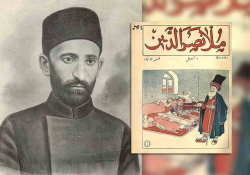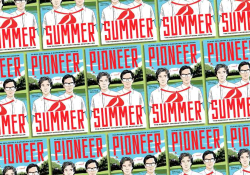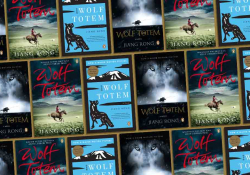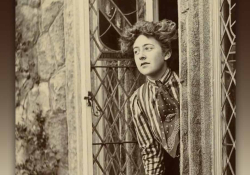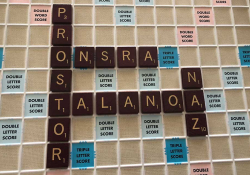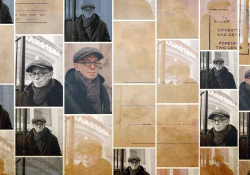One Day (an excerpt)
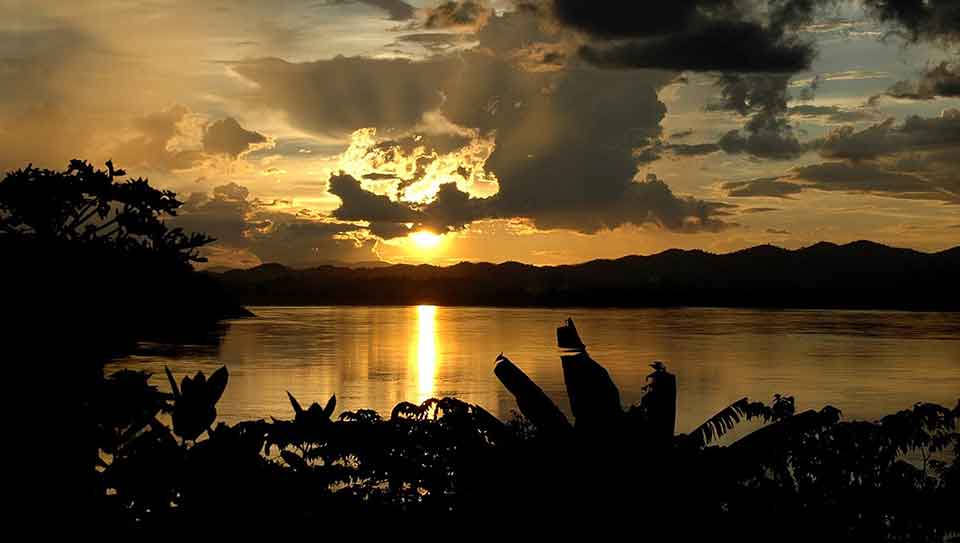
In this short excerpt from the early pages of Marguerite Duras’s celebrated work of autofiction, The Lover, Duras looks back to her crossing of a branch of the Mekong River.
One day, I was already old, in the entrance of a public place, a man came toward me. He introduced himself and he said to me, “I have known you forever. Everyone says that you were beautiful when you were young, but I came to tell you that I find you more beautiful now. I like your face better as it is now. Ravaged.”
I often think about this image that I alone still see and of which I’ve never spoken. It is always there in the same silence, bewitching. It is the one of myself that I like above all others, the one in which I recognize myself and marvel.
Very early in my life it was too late. At eighteen years old and again at twenty-five, my face took off in an unexpected direction. At eighteen, I was already old. I don’t know if this happens to everyone, and I have never asked. I remember once hearing about this momentum of time that can sometimes hit you at your youngest, most celebrated ages in life. This aging was brutal. I watched it claim my features one by one, changing the way they looked together, making my eyes wider, my gaze sadder, my mouth more defined, fissuring my forehead. Rather than being afraid of it, I watched my face age with the same interest I would have taken, for example, in the unfurling of a story. But I also knew that I wasn’t mistaken, that one day it would relent and take its normal course. The people who had known me at seventeen years old, during my trip to France, were struck when they saw me again two years later, at nineteen. That face, the new one, I kept. It has been my face ever since. It has still aged, of course, but relatively less than it should have. I have a face lacerated by wrinkles, dry and deep, my skin cracked. It has not drooped like those faces with fine features, it has kept its contours, but its matter is destroyed. My face is destroyed.
So, I am fifteen and a half.
On a ferry crossing the Mekong.
The image lasts for as long as it takes the ferry to cross.
I am fifteen and a half. There are no seasons in this country. In this long, sweltering strip of earth, we are in the only season, hot and monotonous, where there is no spring, no renewal.
***
It is during this trip that the image should have detached, should have been removed from the rest. It could have existed, a photograph could have been taken, as another was, elsewhere, under other circumstances. But it wasn’t. The subject was too slight. Who would have thought to take it? It could have only been taken if someone could have presaged the importance of this event to my life, this crossing of the river. But while it was happening, no one knew it even existed. Only God. That’s why this image—and it couldn’t have been any other way—doesn’t exist. It has been omitted, forgotten. It did not detach, was not removed from the rest. It’s from this failure to have been created that it owes its virtue, the virtue of representing an absolute, of creating itself.
So it’s during the crossing of a branch of the Mekong, on the ferry that shuttles between Vinh Long and Sa Đéc in the vast plain of mud and rice in southern Cochinchina. The Plain of the Birds.
I get off the bus and go to the railing. I watch the river. My mother tells me that never in my entire life will I see rivers as beautiful as these, as wide, as wild as the Mekong and its branches ebbing toward the sea, its waters rushing into oblivion, into the vacuum of the ocean, from the foreground to the vanishing point, pouring, gushing, as if the earth was tipped vertical.
I always get off the bus once we’re on the ferry, once night comes, because I am always afraid. I am afraid that the cables will break, that we will be carried out to sea. In the terrible current, I see the last moment of my life. The current is strong enough to carry away anything. Stones, a cathedral, a city. A storm brews under the water, in the battering wind.
Translation from the French
Editorial note: Read Amanda Allard’s note about translating this excerpt.


